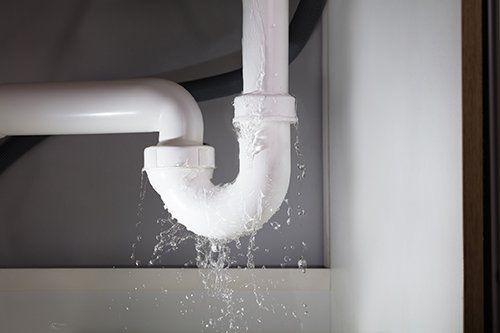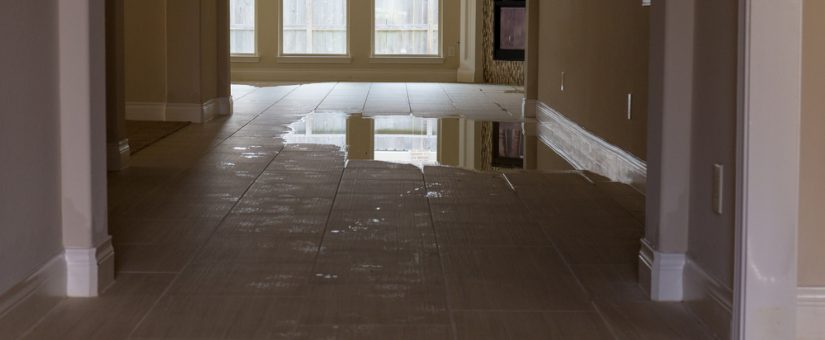The Six Most Common Water Leaks in Your Home: How They Happen and What to Do
The Six Most Common Water Leaks in Your Home: How They Happen and What to Do
Blog Article
Everyone maintains their own individual rationale when it comes to How Fast Water Damage Can Ruin Your Home.

Leakages not only create waste of water however can likewise create unnecessary damage to your house and advertise unwanted natural growth. Water leaks could go undetected given that most of the pipework in our residence is concealed. By comprehending and also looking for day-to-day scenarios that cause leaks, you can shield your house from future leaks and unnecessary damages. Today, we will take a look at 6 leak causes that may be triggering your pipelines to leak.
Trespassing origins
A lot of water leaks begin outside your home instead of inside it. If you discover an abrupt reduction in water pressure, state in your tap, take time to head out and analyze your yard. You may notice damp spots or sinkholes in your backyard, and that may mean that tree roots are attacking water lines triggering water to permeate out. You can have your plumber check for breach, especially if you have trees or hedges near your residential property.
Corroded water supply
This could be the cause of staining or bending on your water pipelines. If our plumbing system is old, take into consideration changing the pipelines since they are at a greater threat of deterioration than the more recent versions.
Faulty Pipeline Joints
Pipeline joints can wear away over time, resulting in water leakages. If you have loud pipelines that make ticking or banging sounds, specifically when the warm water is turned on, your pipe joints are probably under a great deal of stress.
Instant temperature changes.
Severe temperature level changes in our pipes can cause them to broaden as well as acquire all of a sudden. This expansion and tightening might create splits in the pipelines, specifically if the temperature are below freezing. It would certainly be best if you kept an eye on just how your plumbing works. The presence of the formerly stated conditions regularly suggests a high risk.
Poor Water Connectors
Sometimes, a leak can be brought on by loosened pipes as well as pipelines that provide your devices. Usually, changing is what triggers the loose water Links. You may discover when it comes to a cleaning equipment, a pipe may spring a leakage as a result of trembling throughout the spin cycle. In case of a water connections leakage, you may see water running directly from the supply line or pools around your home appliances.
Obstructed Drains
Obstructed drains might be irritating and also inconveniencing, but they can occasionally end up creating an overflow causing break pipes. Keep removing any materials that might go down your drains that can clog them to prevent such inconveniences.
All the above are sources of leakages however not all water leakages arise from plumbing leakages; some leaks could originate from roof leaks. All leakages need to be fixed instantly to stay clear of water damage.
Leakages not just cause waste of water but can additionally cause unnecessary damage to your home as well as advertise undesirable organic growth. By looking and comprehending for daily circumstances that create leaks, you can secure your residence from future leaks and unneeded damages. Today, we will look at six leakage creates that might be causing your pipes to drip.
At times, a leak can be created by loosened hose pipes as well as pipes that provide your home appliances. In instance of a water links leakage, you may notice water running directly from the supply line or pools around your devices.
How To Check For Water Leak In Your Home
How To Check for Leaks
The average household's leaks can account for nearly 10,000 gallons of water wasted every year and ten percent of homes have leaks that waste 90 gallons or more per day. Common types of leaks found in the home are worn toilet flappers, dripping faucets, and other leaking valves. These types of leaks are often easy to fix, requiring only a few tools and hardware that can pay for themselves in water savings. Fixing easily corrected household water leaks can save homeowners about 10 percent on their water bills.
To check for leaks in your home, you first need to determine whether you're wasting water and then identify the source of the leak. Here are some tips for finding leaks:
Take a look at your water usage during a colder month, such as January or February. If a family of four exceeds 12,000 gallons per month, there are serious leaks.
Check your water meter before and after a two-hour period when no water is being used. If the meter changes at all, you probably have a leak.
Identify toilet leaks by placing a drop of food coloring in the toilet tank. If any color shows up in the bowl after 10 minutes, you have a leak. (Be sure to flush immediately after the experiment to avoid staining the tank.)
Examine faucet gaskets and pipe fittings for any water on the outside of the pipe to check for surface leaks.
Undetected water leaks can happen without the home or business owner even realizing. If you suspect a water leak, but not able to find the source. It is time to contact a professional water leak detection service, The Leak Doctor.
How To Find a Water Leak In Your Home
https://www.leakdoctor.com/blog/How-To-Check-For-Water-Leak-In-Your-Home_AE197.html

We hope you enjoyed our part on How to detect water leaks in your home. Thanks so much for taking a few minutes to read our piece of content. So long as you appreciated our blog entry kindly do not forget to pass it around. We love reading our article about How Fast Water Damage Can Ruin Your Home.
See Availability Report this page